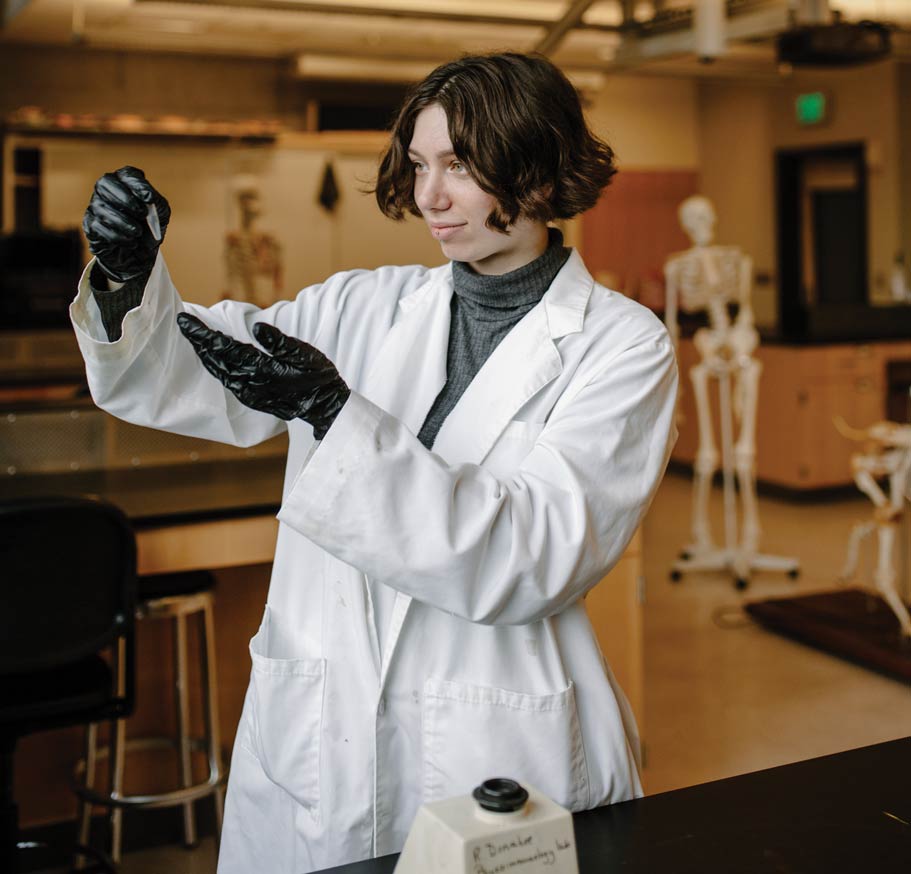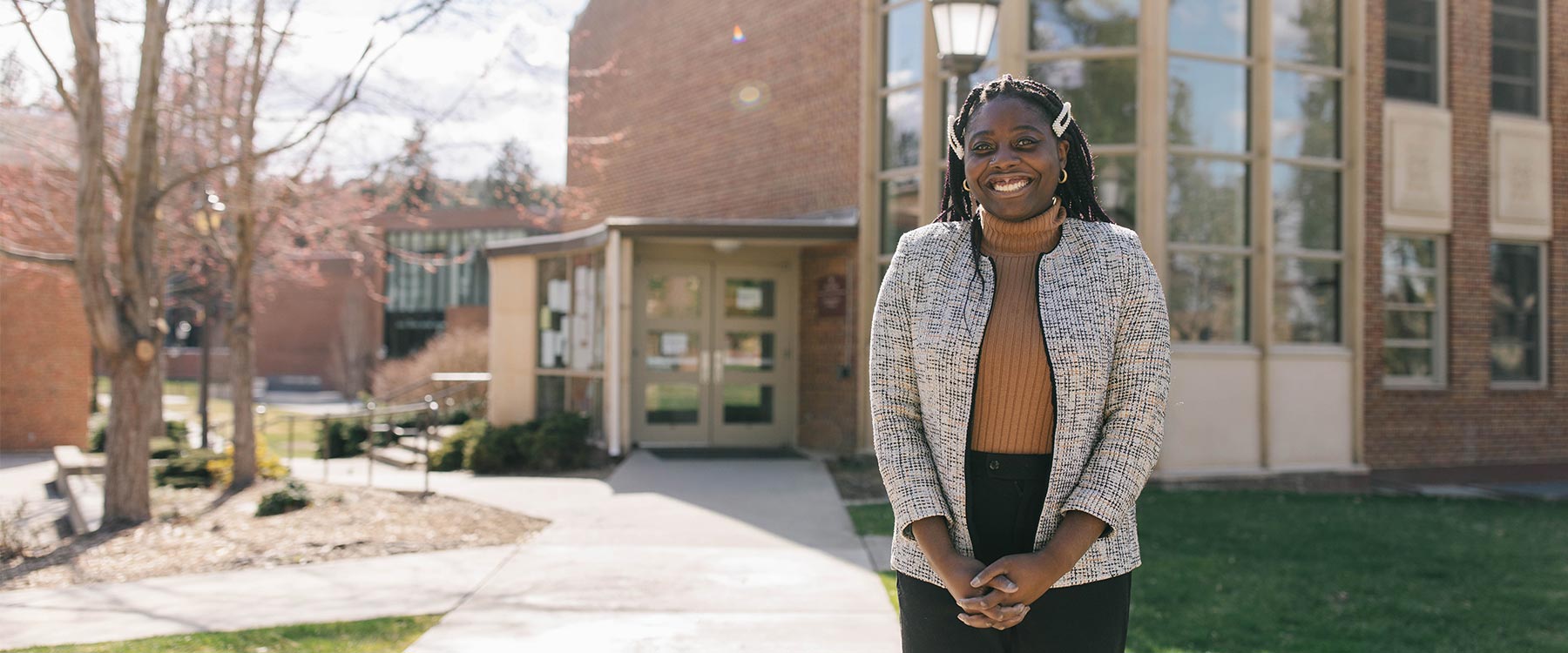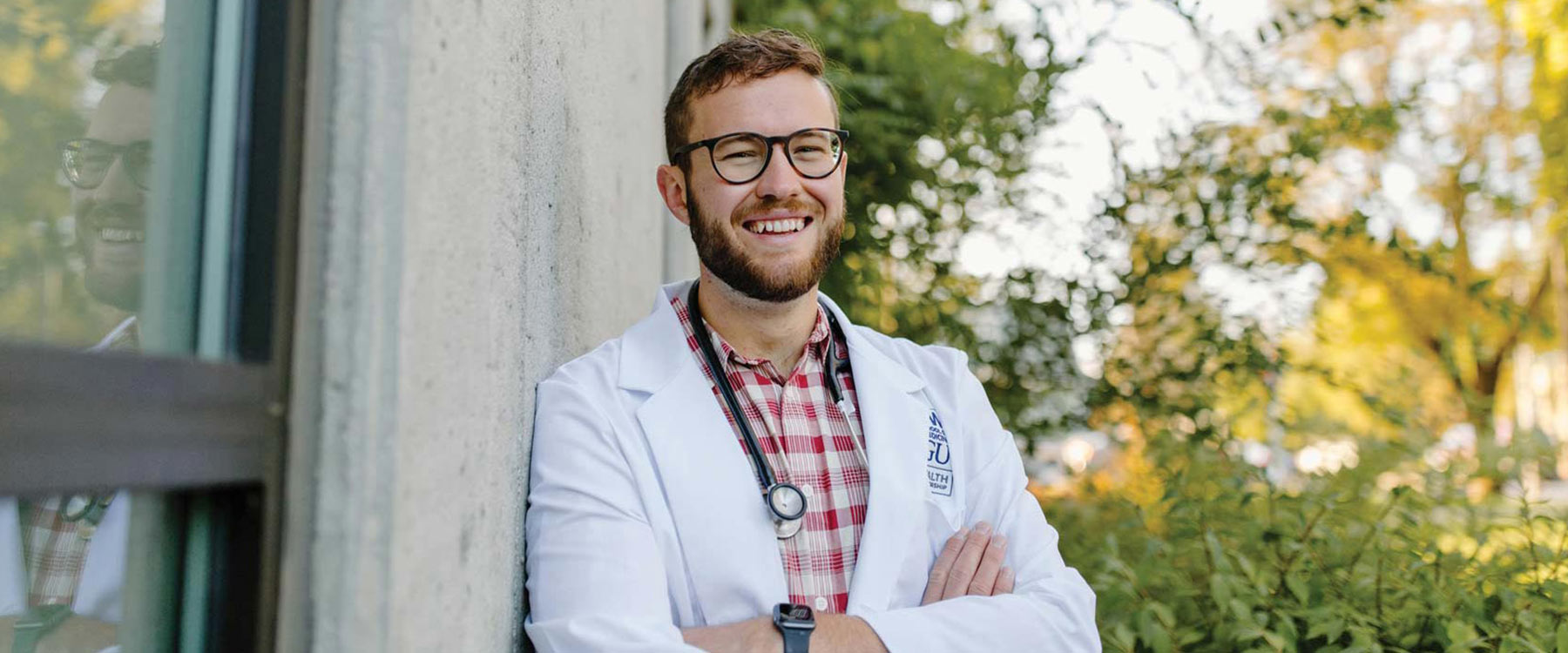Crucial Co-lab-oration
Psychology lab researches treatments for epilepsy, depression
By Megan Jonas
As an undergraduate student, Alisha Epps experienced a pivotal moment when she joined a behavioral neuroscience lab and began researching epilepsy. "That was the first time I understood that the two areas I was interested in, biology and psychology, actually have so much overlap," she says.
Epps studied the strong link between epilepsy and depression in graduate school and has continued that research for the past five years as a Whitworth assistant professor of psychology. Not only is she contributing to the scientific community, but she is providing students with the opportunity to have their own "aha!" moments in the lab.
In fall 2020, Epps began to research treatment strategies for co-occurring epilepsy and depression as part of a three-year grant from the M.J. Murdock Charitable Trust.
"Having epilepsy and depression simultaneously makes finding safe and effective treatments for both conditions an incredible challenge," she says.
Epps and her students are examining diet and exercise as potential therapies by using a unique rat model in Whitworth's vivarium, where live animals are cared for and studied. So far, the preliminary results have been encouraging. They also plan to eventually test a pharmaceutical treatment.


